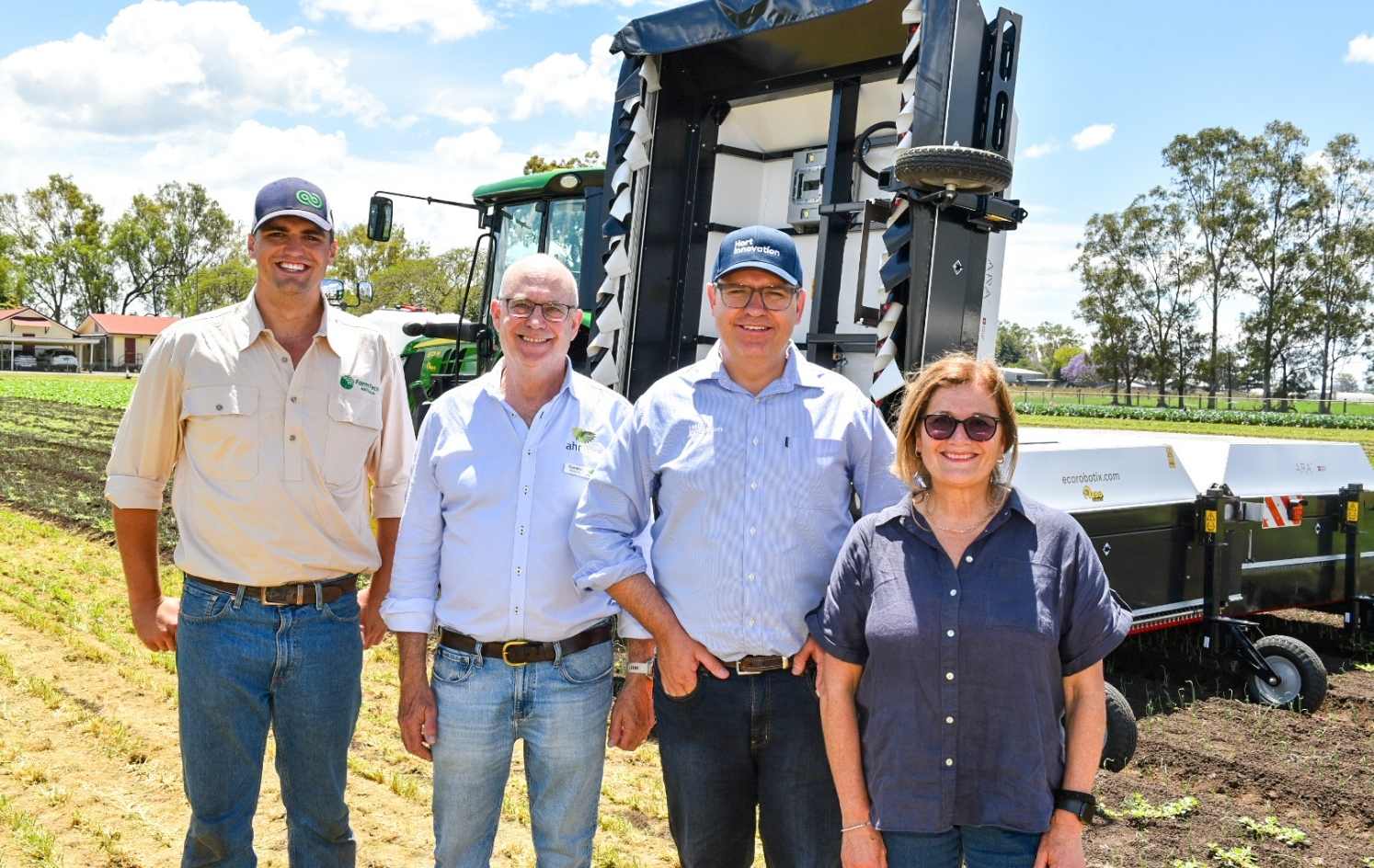Key Takeaways:
- $30 million national initiative announced at the Gatton AgTech Showcase
- Led by Hort Innovation with Applied Horticultural Research, Nufarm, and La Trobe University
- Focused on AI robotics, machine learning, non-chemical weed control, and autonomous systems
- Developed with growers to improve productivity, cut costs, and boost sustainability
Smarter Farming for Australia’s Horticulture
Australia’s horticulture sector is set for a major step forward with the launch of the Next Generation Weed Management Project, a $30 million initiative funded by Hort Innovation. The project brings together Applied Horticultural Research, Nufarm, and La Trobe University to transform how growers manage weeds through technology and smarter practices.
The goal is to integrate AI-enabled robotics, autonomous vehicles, and non-chemical solutions directly into farm operations, helping growers tackle rising labour and input costs while improving long-term efficiency and environmental outcomes.
A Strategic Investment in Innovation
“Productivity isn’t just about scale—it’s about strategy,” said Brett Fifield, CEO of Hort Innovation. “This project is a prime example of how we’re investing in smarter ways to grow. By linking this initiative to the broader productivity agenda, we’re helping growers farm smarter.”
According to Hort Innovation’s 2025 Factors Driving Horticulture Productivity report, automation and AI could generate up to $1 billion in additional value per year, helping the sector reach $22 billion by 2040.
At the Gatton AgTech Showcase, growers saw smart weeding technology in action—offering a glimpse of how innovation can redefine on-farm productivity.
Collaboration with Growers
FarmTech Australia spokesman Richard Gorman said the project’s grower-led approach ensures real-world relevance. “We are testing AI-powered technologies under commercial conditions so growers can have confidence in the research and its outcomes. The aim is to reduce operating costs, improve productivity, and help Australian horticulture stay globally competitive.”
Project Components
Applied Horticultural Research – Partnering with grower groups in Queensland and Victoria to accelerate adoption of AI-enabled robotics and autonomous vehicles for weeding, planting, and spraying.
Nufarm Australia – In collaboration with Croplands and Kilter, developing a precision spot-spraying system using machine learning and green-on-green detection to reduce herbicide use by up to 95 percent while improving yield and lowering labour costs.
La Trobe University – Working with the Northern Territory Department of Agriculture and Fisheries to study Anaerobic Soil Disinfestation (ASD), a chemical-free method of weed and pathogen control gaining global traction.
Investing in a Sustainable Future
The Next Generation Weed Management (BY23002) project is funded through Hort Innovation Frontiers, with support from Applied Horticultural Research, La Trobe University, Nufarm Australia, the Northern Territory Department of Agriculture and Fisheries, Tripod Farmers, Kalfresh, VeeJays, and Qualipac (through FarmTech Australia), alongside contributions from the Australian Government.
By advancing automation, AI, and regenerative farming practices, Hort Innovation is driving a more productive and sustainable future for Australian horticulture.


